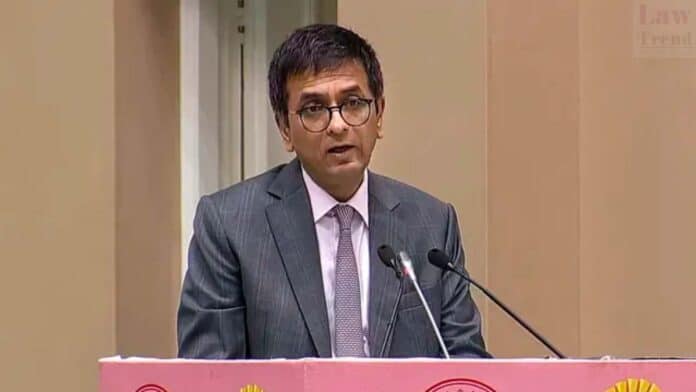Chief Justice of India, D.Y. Chandrachud, delivered a resolute message against the use of derogatory language in courtrooms, particularly towards women, at the inauguration of the North Goa District Courts Complex on Saturday. He underscored the imperative to eliminate all forms of discriminatory speech to ensure the judiciary is a beacon of respect and empowerment.
In his address, the Chief Justice highlighted the complaints he has received from women judicial officers concerning the insensitive treatment and language used by some members of the court’s administrative staff. “We must actively work to dismantle all barriers to have truly democratic access to justice,” CJI Chandrachud stated, emphasizing the need for courts to reflect the principles of inclusivity and respect in every aspect, including language.
The Chief Justice pointed out that derogatory remarks not only perpetuate outdated stereotypes but also disproportionately impact women and marginalized communities. He advocated for a vigilant re-examination of the legal lexicon used within courtrooms to ensure it does not unintentionally reinforce these stereotypes.
Additionally, CJI Chandrachud revealed that the Supreme Court has developed a handbook on gender to educate about gender stereotypes frequently encountered in legal settings. This initiative is part of a broader effort to refine judicial discourse and practice at all levels of the judiciary.
Addressing the gathering, he also called for the judgments and orders of the court to be available in regional languages to enhance accessibility. He shared that the Supreme Court’s orders are being translated into Konkani and expressed hope that the Bombay High Court would follow suit with other regional languages.
In a poignant symbol of his vision for the judiciary, CJI Chandrachud referred to the redesign of the statue of Lady Justice in the Supreme Court. Unlike traditional depictions, the statue does not wear a blindfold, nor does it carry a sword. Instead, it holds the Constitution of India, emphasizing the law’s role in addressing social inequalities rather than claiming impartial blindness. “The equality of the law is not a formal sense of equality but substantive, recognizing that it offers security,” he explained.




